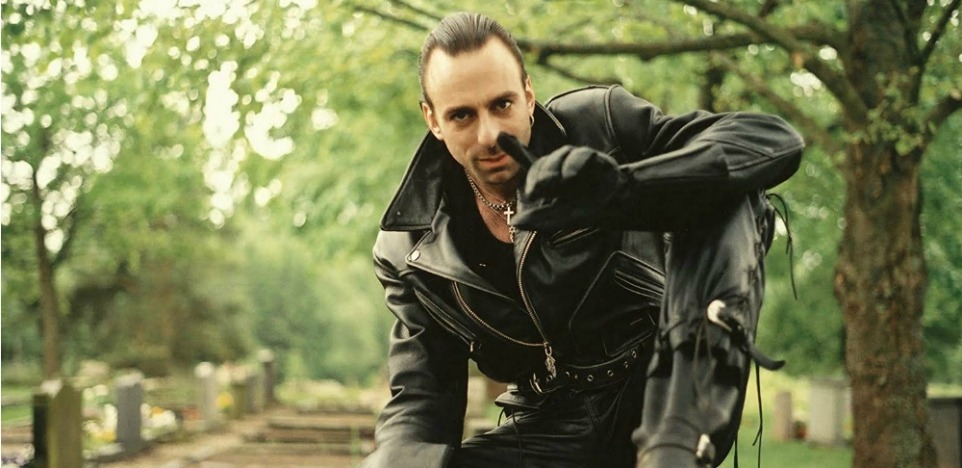House of Angels is one of the best films about the positive and negative energies which can build up or tear down life in a community. Written and directed by Colin Nutley, an Englishman, it was a box office smash in Sweden.
Following the death of Erik Zander (Per Oscarsson), an elderly eccentric in a small rural town, Axel (Sven Wollter), a well-to-do landowner, expects to pick up his woodland property at an auction. But then Fanny (Helena Bergstrom), Erik's granddaughter, previously unknown to the village, arrives on the back of a Harley-Davidson with her pony-tailed lover Zac (Rikard Wolff).
The townsfolk are shocked by these two bohemian outsiders who dress and act bizarrely. Fanny and Zac move into the Zander residence which is called "House of Angels." She tries to reach out to people in the community but the only one who seems to respond cordially is Gottfried, an old man who knew her mother.
Axel turns against this outsider when she rejects his bid for her property. The gossip really heats up when Fanny invites some of her free-spirited friends from the cabaret circuit for a visit. A group of irate village women storm into the House of Angels and accuse them of running a brothel.
Writer and director Colin Nutley spoke about the film's focus on the clash between insiders and outsiders: "One of the widespread problems of our time is being small-minded in a way that can be destructive. We all judge too fast, judge on looks or color of the skin. Maybe it's time we slow down a bit and get to know those who are different from us."
This is exactly the advice offered by the local minister (Reine Brynolfsson). He is quite upset by the escalating hostility in the village. He decides to intervene by inviting Fanny, Zac, and their guests to entertain the townsfolk at a show at the church. The minister, who plays the piano and sings songs at the women's sewing circles, plays master of ceremonies at the event.
House of Angels is delightful, quaint, and very entertaining. The characters, despite their blind spots and idiosyncrasies, are open to change and surprise. We all fear the strange; it disrupts and disturbs our established routines and puts us off balance. The best thing to do is to follow the spiritual impulse of the minister, extend the borders of our hospitality, and draw the stranger inside to share meanings in a free and friendly space. In some places that's called fellow feeling. In other situations, it's defined as grace.
